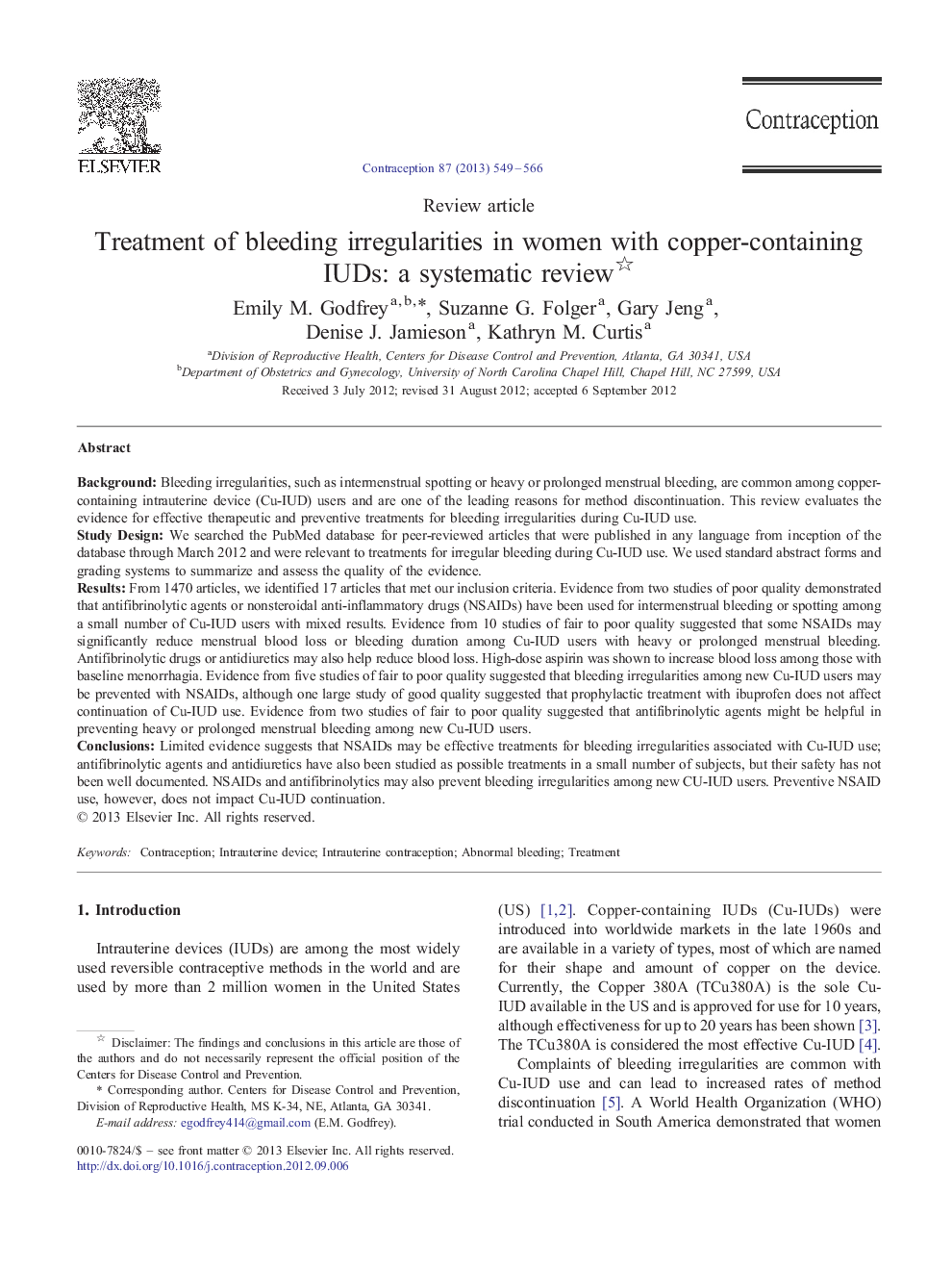| کد مقاله | کد نشریه | سال انتشار | مقاله انگلیسی | نسخه تمام متن |
|---|---|---|---|---|
| 3913478 | 1251441 | 2013 | 18 صفحه PDF | دانلود رایگان |

BackgroundBleeding irregularities, such as intermenstrual spotting or heavy or prolonged menstrual bleeding, are common among copper-containing intrauterine device (Cu-IUD) users and are one of the leading reasons for method discontinuation. This review evaluates the evidence for effective therapeutic and preventive treatments for bleeding irregularities during Cu-IUD use.Study DesignWe searched the PubMed database for peer-reviewed articles that were published in any language from inception of the database through March 2012 and were relevant to treatments for irregular bleeding during Cu-IUD use. We used standard abstract forms and grading systems to summarize and assess the quality of the evidence.ResultsFrom 1470 articles, we identified 17 articles that met our inclusion criteria. Evidence from two studies of poor quality demonstrated that antifibrinolytic agents or nonsteroidal anti-inflammatory drugs (NSAIDs) have been used for intermenstrual bleeding or spotting among a small number of Cu-IUD users with mixed results. Evidence from 10 studies of fair to poor quality suggested that some NSAIDs may significantly reduce menstrual blood loss or bleeding duration among Cu-IUD users with heavy or prolonged menstrual bleeding. Antifibrinolytic drugs or antidiuretics may also help reduce blood loss. High-dose aspirin was shown to increase blood loss among those with baseline menorrhagia. Evidence from five studies of fair to poor quality suggested that bleeding irregularities among new Cu-IUD users may be prevented with NSAIDs, although one large study of good quality suggested that prophylactic treatment with ibuprofen does not affect continuation of Cu-IUD use. Evidence from two studies of fair to poor quality suggested that antifibrinolytic agents might be helpful in preventing heavy or prolonged menstrual bleeding among new Cu-IUD users.ConclusionsLimited evidence suggests that NSAIDs may be effective treatments for bleeding irregularities associated with Cu-IUD use; antifibrinolytic agents and antidiuretics have also been studied as possible treatments in a small number of subjects, but their safety has not been well documented. NSAIDs and antifibrinolytics may also prevent bleeding irregularities among new CU-IUD users. Preventive NSAID use, however, does not impact Cu-IUD continuation.
Journal: Contraception - Volume 87, Issue 5, May 2013, Pages 549–566